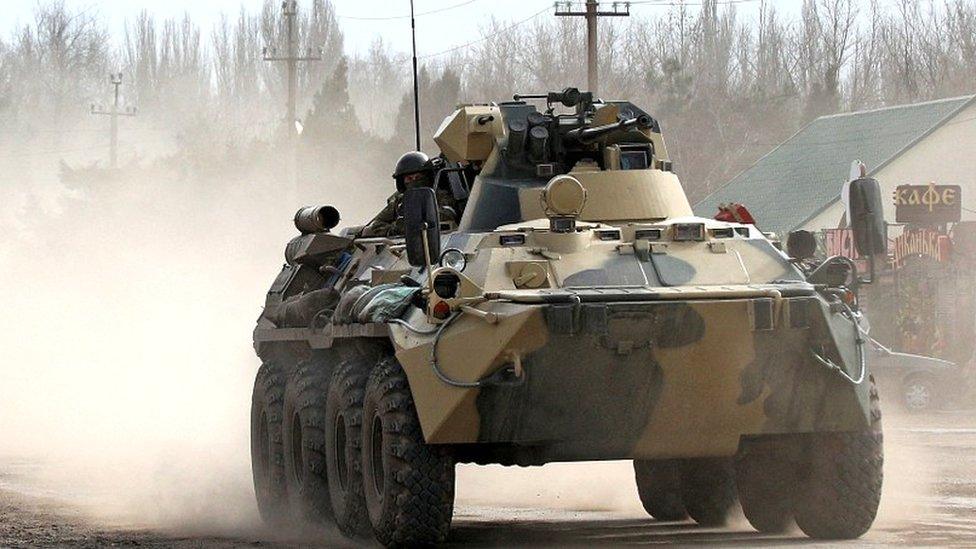Ukraine invasion: Ireland's response 'will not be found wanting'
- Published
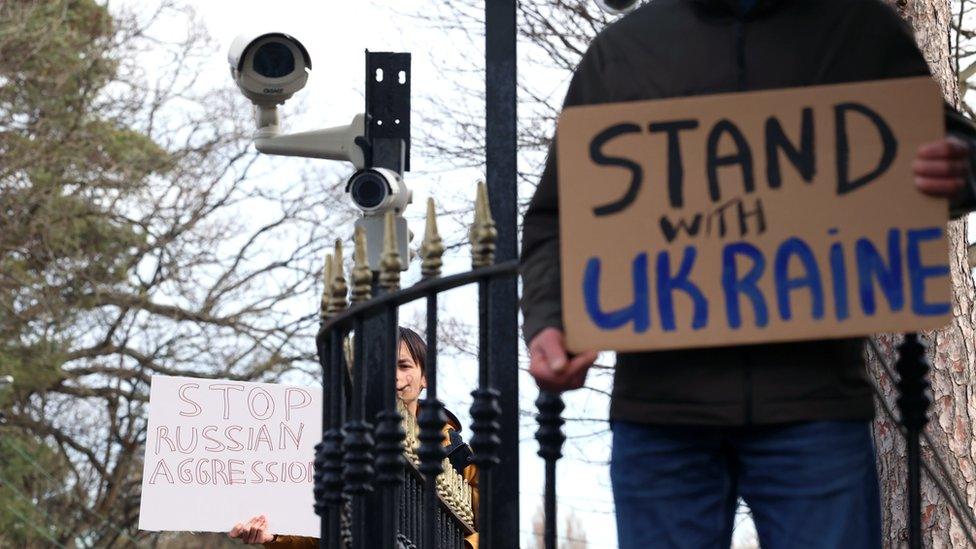
Protesters outside the embassy of the Russian Federation in Dublin on Friday
Ireland's humanitarian response to the invasion of Ukraine will "not be found wanting," the taoiseach (Irish prime minister) has said.
In a social media post, Micheál Martin said the "unjustified war" had changed the world forever.
He said the Ukrainian people had shown "such courage, in the face of great loss of life and destruction".
It comes as the EU imposed a blanket flight ban on Russian planes.
Commission President Ursula von der Leyen also said the bloc would, for the first time in its history, "finance the purchase and delivery of weapons and other equipment to a country that is under attack".
Mr Martin said that the EU was "unified" and that further sanctions would "hit Russia hard".
The EU-wide ban on Russia using its airspace, external was part of a further package of sanctions.
The Irish government had already taken the decision earlier on Sunday to close its airspace to all Russian planes.
Irish broadcaster RTÉ later quoted an Irish government spokesperson as saying Ireland would not take part in the financing of weapons to Ukraine, deciding to abstain in line with commitments made in the current Programme for Government, negotiated between Fianna Fáil, Fine Gael and the Green Party.
Instead, the government will contribute €9m (£7.53m) to the non-lethal EU fund aiding Ukrainian forces. This will include helmets, medical equipment, blood and fuel.
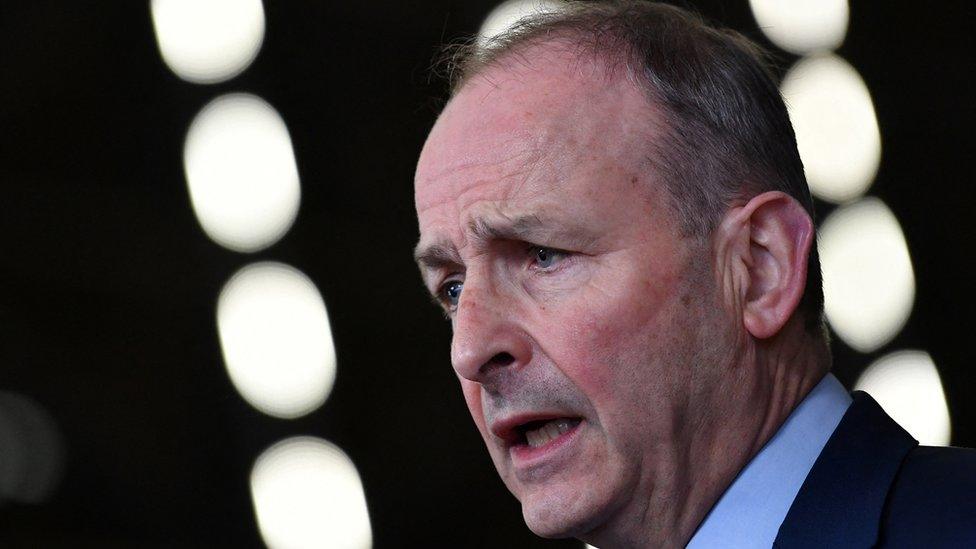
Taoiseach Micheál Martin said the "unjustified war" had changed the world
The Irish government had already taken the decision earlier on Sunday to close its airspace to all Russian planes.
Western allies have agreed a significant escalation of sanctions against Moscow.
Irish Minister for European Affairs Thomas Byrne said they would have a devastating impact on ordinary Russians as well as the president.
Allow X content?
This article contains content provided by X. We ask for your permission before anything is loaded, as they may be using cookies and other technologies. You may want to read X’s cookie policy, external and privacy policy, external before accepting. To view this content choose ‘accept and continue’.
The US, European Union and UK have agreed to block "selected" Russian banks from Swift, an international payment system used by thousands of financial institutions.
"Restrictive measures" will also be imposed on Russia's central bank.
Allow X content?
This article contains content provided by X. We ask for your permission before anything is loaded, as they may be using cookies and other technologies. You may want to read X’s cookie policy, external and privacy policy, external before accepting. To view this content choose ‘accept and continue’.
Mr Byrne told BBC Northern Ireland's Sunday Politics that Russian President Vladimir Putin was not going to be deterred by any sanctions in the short-term.
"But what is clear is that the democratic world is working together and the latest sanctions will have an absolutely devastating effect on the Russian economy and Putin's own personal resources over the medium term," he said.
"Ordinary Russians will see a big impact on Monday morning when they go to their banks.
"The EU is an organisation of peace and democracy and one of the weapons that we have is sanctions, and those sanctions are going to have a crippling effect on the Russian economy, make no mistake about that.
"The sanctions on Swift are already having an impact and the sanctions on the Central Bank of Russia are absolutely unprecedented."
East Belfast MP Gavin Robinson, who sits on the House of Commons' defence committee, said there was a missed opportunity to bring in sanctions earlier this year when Russian troops were amassing at Ukraine's borders.
"There could have been a clearer focus internationally on the level of economic sanctions - that approach may have caused Vladimir Putin to pause and think," he said.
'Shocking attacks'
Russian-owned planes, including private jets, can also no longer enter UK airspace.
Mr Byrne said it would soon be "completely untenable for Russian airlines to fly anywhere into the Western world".
Irish Foreign Affairs Minister Simon Coveney confirmed the airspace move on Sunday and had called on other EU countries to do the same.
He tweeted, external: "Shocking Russian attacks on Ukraine overnight. Ireland will move to shut off Irish airspace to all Russian aircraft."
Mr Byrne also told the the BBC that Ireland would back calls for Ukraine to be a candidate for EU membership.
He said the country "absolutely would support" such a move.
The minister said the expulsion of Russian diplomats from EU countries was "under discussion".
"It's under discussion, there's no question, but it'll be done on a European level," he said,
"I think we'll have much greater effect if we all make a move together."
- Published24 February 2023
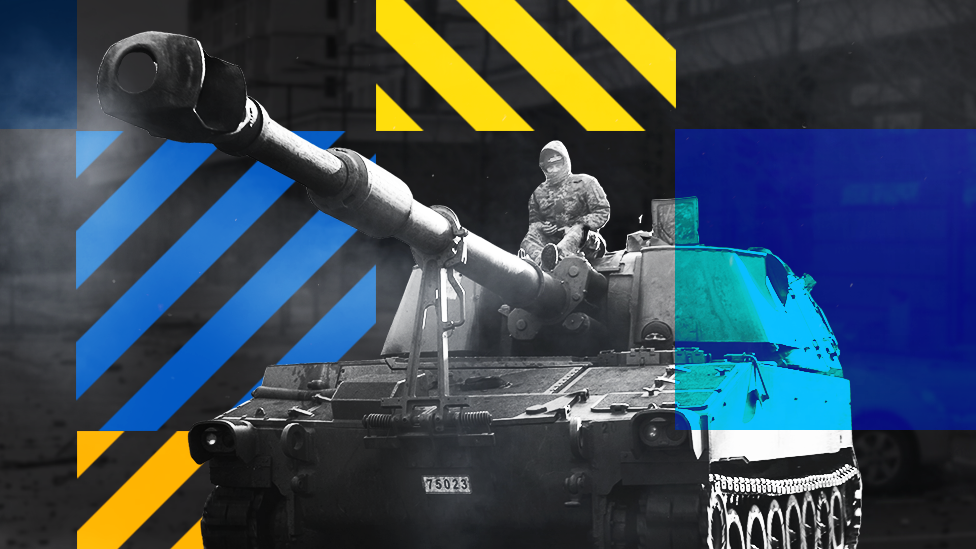
- Published27 February 2022
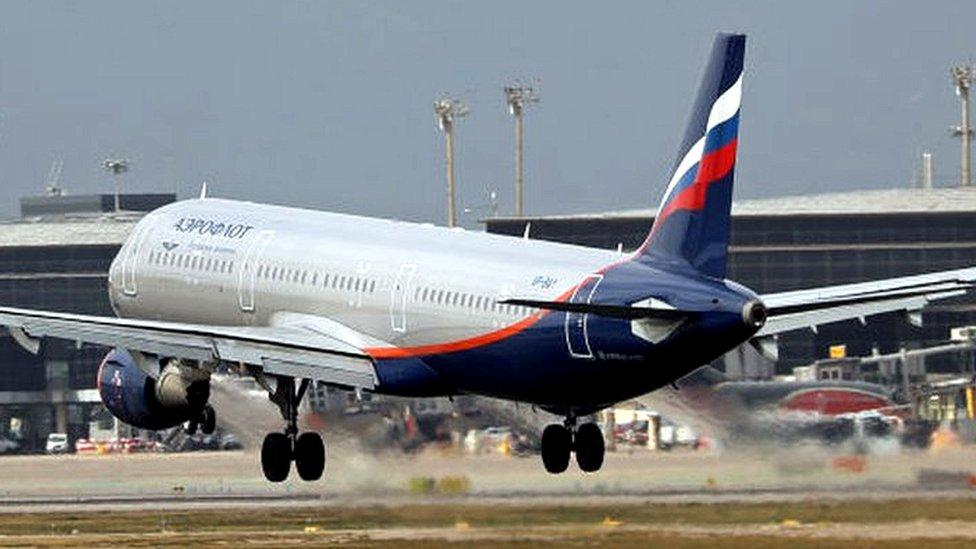
- Published4 May 2022
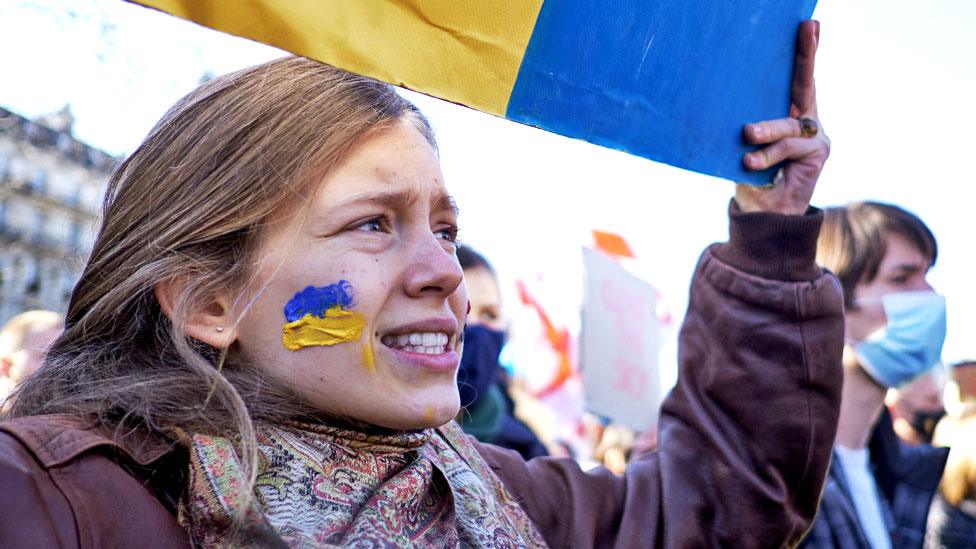
- Published26 February 2022
